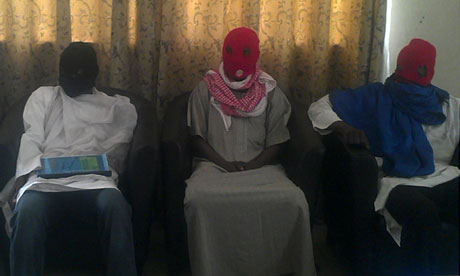Less than 24 hours after the Executive Director of the Civil Rights Congress, Mallam Shehu Sani turned down the offer of being a member of the Presidential Committee on Dialogue and Peaceful Resolution to the Security Challenges in the North newly constituted by the Federal Government, a second member, Dr Datti Ahmed, the President of the Supreme Council for Sharia in Nigeria, has also withdrawn from the committee.
While Sani’s withdrawal is based on his claim that he was never contacted or informed by the Presidency prior to his appointment, Datti said his rejection is based on his bitter past experience with the government when he voluntarily tried to act as a mediator between the authorities and the Boko Haram Islamist group last year.
Sani also expressed doubt about the viability of dialogue with Boko Haram without first, a discreet meeting held between individuals who enjoy the confidence of the sect and members of the sect.
He had said, “You cannot simply wake up one day, announce amnesty and set up a committee without consulting them. You must have persons who on that committee have access and respect of the members of the sect to initiate discussions with them. A committee headed by a minister in this government does not make any meaning to me.”
Ahmed made this known on the Hausa service of the British Broadcasting Corporation, where he also accused the government of insecurity and faulted the composition of the committee.
He said that the Chairman of the panel and Minister of Special Duties, Kabiru Turaki, as well as the Secretary, who is a nominee of the Office of the Secretary to the Government of the Federation, would always tell the government what it wanted to hear and “not the truth.”
He said,” Previously, I made such moves twice and it wasn’t the government that asked me to do that. We had reached a stage where, had the government agreed with what we resolved with the sect members, by now we would have forgotten everything. Nigeria would have witnessed peace by now.
“When we told the government everything we discussed with them, and the agreement we had which were not difficult to meet – that first of all if the dialogue was truly genuine their wives and children that were unjustly detained should be released because they committed no crime.
“We advised the government on that; we said even if government continued to detain them, there was no any gain in doing so. The government said they would release them but it did not. That act showed there was deceit on the part of the government. We also said if these people were released, a place should be arranged where we would sit and discuss matters.
“Secondly, the chairman of this committee is a minister and the secretary too works for the government. So whatever we discuss, they are the ones who will write and take it to the government. So, I believe if this meeting is done, what they will write will be full of lies.
“They will feed the government with what the government wants to hear and we would be in trouble with the ordinary Nigerians. The minister and secretary will tell lies to the government and we would be left quarrelling with young Nigerians;, young enough to be our children.”
He added that from past experience, the government displayed insincerity in the way it did everything possible for it to fail.
He said, “It was just like we were going to have a peaceful resolution the next day and what the government should have done was not something difficult. It was just for them to release their (Boko Haram members) wives and reduce tension in Yobe and Borno states and stop persecuting the people there.
“The government said it was going to do that but it did not. It is the same government that wants to do that now? It is the same (Goodluck) Jonathan and his representatives and we are the same people, nothing has changed.”
In March 2012, Boko Haram had picked Ahmed to mediate between it and the government based on the fact that its founder, Mohammed Yusuf had represented Borno State in the council of SCSN.
However, Ahmed withdrew after details of the discussions were leaked to the media.
He had said, “This development has embarrassed us very much and has created strong doubts in our minds about the sincerity of the government’s side in our discussion, as the discussion is supposed to be very confidential to achieve any success. In view of this unfortunate and unhelpful development, we have no option but to withdraw from these early discussions.”
However, the Presidency has reacted to these withdrawals by saying that grandstanding and negativity won’t solve the security crises.
Special Adviser to the President on Media and Publicity, Dr. Reuben Abati, said in an interview on Thursday, that it was more of grandstanding if those found to be eminently qualified to contribute to ending the sect’s violence were “invited by the President and the best they could do is to reject the offer.”
He also faulted Sani’s argument that the amnesty committee would fail in its assignment if certain persons were not included in it. He said the best thing the rights activist should have done was to accept the invitation to serve and then make the names of persons the committee could talk to available to his co-members.
Abati was however upbeat that the present administration would succeed in its quest to restore peace to the country.

